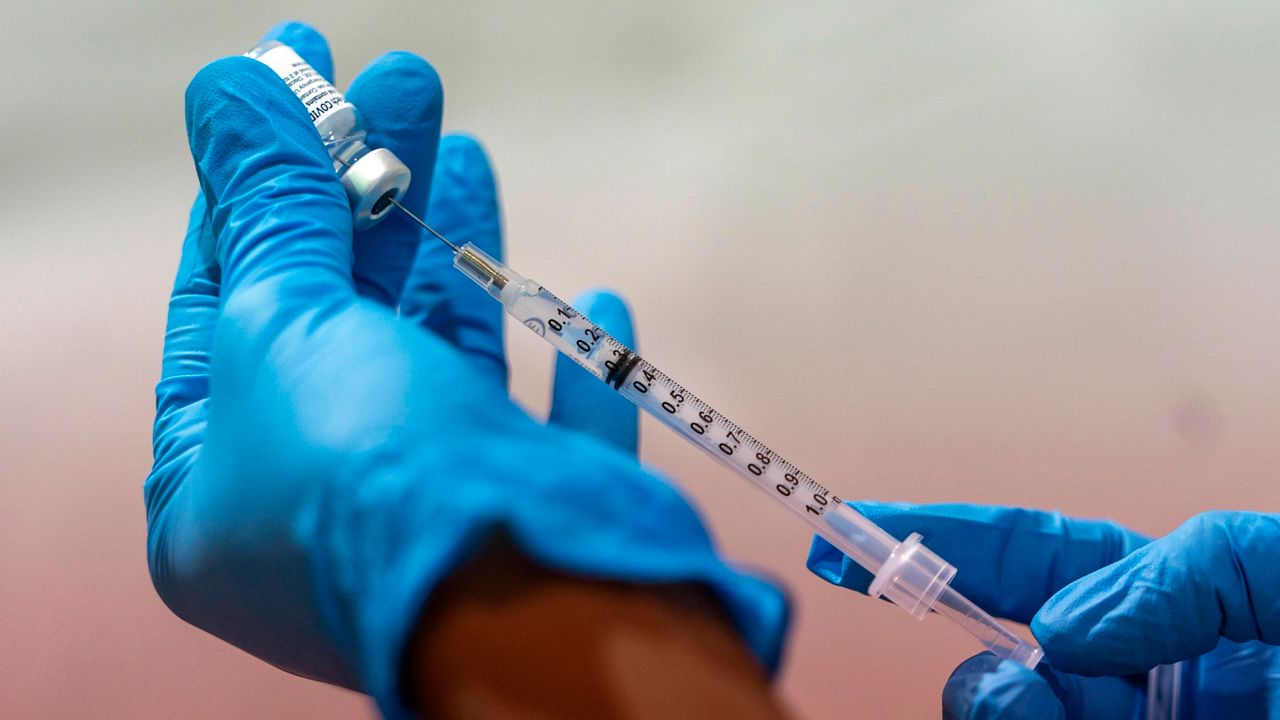Seeing higher-than-expected cases of heart inflammation in young people who received the Pfizer and Moderna COVID-19 vaccines, the Centers for Disease Control and Prevention announced Thursday it will hold an emergency meeting of its advisers next week.
What You Need To Know
- The CDC announced Thursday it will hold an emergency meeting June 18 to discuss higher-than-expected cases of heart inflammation in young people who received the Pfizer and Moderna COVID-19 vaccines
- The CDC's Dr. Tom Shimabukuro told an FDA panel that further study is needed before a conclusion can be reached, but, he added, "We clearly have an imbalance there”
- Shimabukuro noted that 12- to 24-year-olds accounted for less than 9% of mRNA vaccines administered but 52.5% of the observed cases of myocarditis and pericarditis
- Health officials still recommend that everyone 12 or older be vaccinated, noting that the cases of myocarditis and pericarditis are very rare
In a presentation Thursday to a Food and Drug Administration advisory group, Dr. Tom Shimabukuro, deputy director of the CDC's Immunization Safety Office, said his agency analyzed data from a tracking system for adverse events following vaccinations. There were 285 suspected cases of myocarditis and pericarditis in people 30 or younger — 226 of which met the CDC’s “working case definition” of the conditions. Fifteen are still hospitalized and three are in intensive care.
Shimabukuro said further study is needed before a conclusion can be reached and not all the preliminary cases “will turn out to be true myocarditis or pericarditis reports.”
But, he added, "We clearly have an imbalance there.”
Of the 270 people who were discharged, 91% were sent home, while 0.1% were sent to other facilities. The data did not specify for the rest.
Eighty-one percent fully recovered, but some are experiencing ongoing symptoms.
Shimabukuro noted there was a glaring imbalance when it came to 12- to 24-year-olds, who accounted for less than 9% of mRNA vaccines administered but 52.5% of the observed cases of myocarditis and pericarditis.
The agency said that out of the 2.3 million doses administered to 16- and 17-year-olds, anywhere from two to 19 cases of myocarditis or pericarditis would normally be expected, but 79 cases were observed.
Out of the 9.8 million doses given to 18- to 24-year-olds, eight to 83 cases were expected, but 196 were observed.
The number of cases in older populations were in line with expecations.
The cases predominantly have been seen in males and been most common following the second vaccination shot.
The CDC’s Advisory Committee on Immunization Practices will meet June 18 to examine the evidence and assess the risk of heart inflammation following use of the vaccines.
In the meantime, health officials still recommend that everyone 12 or older be vaccinated, noting that the cases of myocarditis and pericarditis are very rare. More than 172 million Americans have received at least one vaccine and more than 141 million are fully vaccinated.
According to the Mayo Clinic, myocarditis is an inflammation of the heart muscle that can reduce the heart's ability to pump and cause rapid or abnormal heart rhythms. Symptoms include chest pain, fatigue, shortness of breath or, in severe cases, blood clots that can lead to a stroke.
Pericarditis is swelling and irritation of the thin tissue surrounding the heart, generally resulting in chest pain. Other symptoms might include abdominal or leg swelling, cough, fatigue, fever, or shortness of breath.
The CDC announced last month that it was investigating reports that a small number of young people experienced myocarditis after being vaccinated using the Pfizer and Moderna shots.



